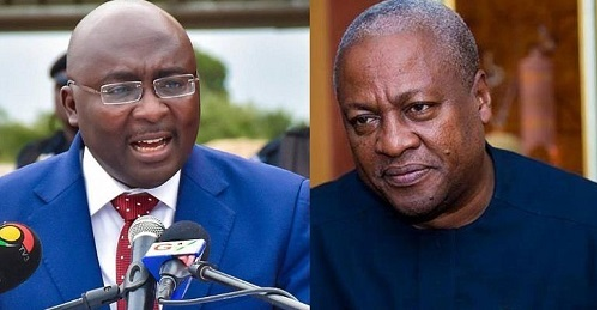Ghana is gearing up for presidential and parliamentary elections in just over six months. Focusing on the elections, the media is asking: Will they be peaceful or beset with serious conflicts? If the latter, what will be the role of religion?
This article focuses on the second question in relation to the presidential election: what role will religion play in the presidential election? The second part of this article will focus on the relationship of religion to political instability during the current election campaign.
Since the inauguration of the Fourth Republic in 1993, Ghana has successfully conducted several rounds of presidential and parliamentary elections; December 2024’s elections are the ninth since Ghana redemocratised and the Fourth Republic was born.
Since 2000, national electoral races have always been close in Ghana, despite a relatively large number of political parties. The Fourth Republic has traditionally witnessed tight presidential and legislative races between the two giants: the New Patriotic Party (NPP) and the National Democratic Congress (NDC), and this time promises to be no different. Will the NPP ‘break the eight’ and continue in power for an unprecedented third term? Or, will the NDC grab power, removing the incumbent party and president after two terms?
The 2024 presidential election is a first for Ghana, with the candidates for the two major parties, the NPP and NDC, respectively, a Muslim and a Christian. Until now, during the Fourth Republic, the presidential candidates of both major partners have been Christians.
The NPP’s candidate, the current vice-president, is Dr Mahamadu Bawumia, while that of the NDC is a former president, John Dramani Mahama. Dr Bawumia, the current vice-president, is a Muslim, born in Tamale in 1963, son of Alhaji Mumuni Bawumia and Hajia Mariama Bawumia. Mr Mahama, a Christian and member of the Gonja ethnic group, was born in 1958 in Bole, Savannah region.
Religious tensions/Harmony
Does it matter politically that the main presidential candidates are from different religions? Ghana is a relative rarity among West African countries: a country noted both for longstanding religious tolerance and for the absence of serious religious tensions during elections. Will things be different this time? If a Muslim is elected as president for the first time, some Christians might not welcome this development as they would reckon that Muslims might get a better deal than Christians in the next government.
They might, as a result, vote for a Christian as they might consider that he would do more for Christians than would a Muslim. Some Muslim voters, on the other hand, could choose a Muslim presidential candidate for the same reason: in office, a Muslim president might do more for Muslims than a Christian.
This concern raises the potential for some electoral candidates to exploit this religious issue for political gain. Since 1993, Ghana has been one of Africa’s few continuous liberal democracies, a country with a Christian majority and a significant Muslim minority (respectively, 70%/20%). African traditional religions and ‘other religions’ amount to around 5%, while there are maybe 4% ‘religious nones’, that is, those who do not profess any religion.
Although the potential for ‘religious’ conflict is highlighted in the media as a serious source of pre-election political instability, Ghana has had harmonious inter-faith relations since independence in 1957. Most Ghanaians are very keen to preserve inter-religious harmony despite the potential for disharmony in the run up to the 2024 elections. Religious leaders – both Christian and Muslim – make frequent public pleas for religious harmony, urging their co-religionists, as well as politicians, not to fan the flame of political instability and increased tensions pre-election.
What might cause such instability and tensions? First, there is the regional threat of jihadism, with Islamist militants from neighbouring countries, such as Burkina Faso, Mali, and Chad, believed to be targeting Ghana, and seeking new recruits for their campaigns. Second, there are historic development disparities in Ghana: the relatively poor north of the country and the relatively rich south of the country, and religious issues do arise in this context, not least because the north of the country is where many Muslims live and the south is more heavily populated by Christians.
Third, there is what some see as skewed political power in Ghana, with mainly southern Christians dominating politics since independence in 1957, and with the Muslim minority traditionally less well represented in the legislature and never as president.
With a little more than six months to go before the elections, dangers of increased religious tensions and associated political instability are surfacing in the media and being spelled out by Ghana’s religious leaders. In the second part of this article, I focus on ways that Ghana can minimise the chances of religious tensions becoming a serious obstacle to the continuity of Ghana’s democracy following December’s elections and the inauguration of the new government in January 2025.
The writer is an Emeritus Professor of Politics, London Metropolitan University, UK
UK; tsjhayn1@londonmet.ac.uk

